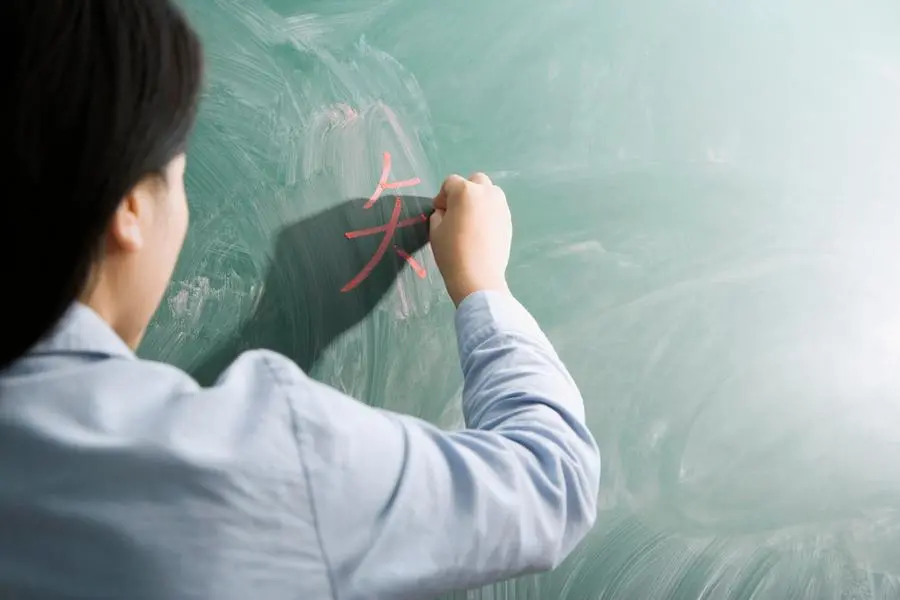PHOTO
With the growing influence of China in the global landscape, being able to speak Chinese is considered an advantage. Learning Chinese is not only becoming trendy, it also opens up more opportunities for UAE residents.
“There is an increasing number of youngsters and adults attending Chinese language programmes, in order to stay competitive in their school, career, or facilitate interactions with Chinese businesses,” said Qi Ye, managing director of Dubai-based Nihao Institute.
Iraqi expatriate Aysn is one of them. She has been learning Chinese for five years and she takes pride in her quick grasp of the language. She’s now eager to visit China and see in person the places she learned from textbooks.
"People were impressed and showed compliments when I was speaking Chinese and it boosted my confidence and made me more motivated to learn Chinese culture,” she told Khaleej Times.
There is also a drive to deepen mutual relationship and cultural exchange between the UAE and China. In 2019, the Ministry of Education launched the Chinese Learning Programme in public schools — and it has been well received by students and parents.
This year, as the UAE and China mark their 40th anniversary of bilateral relationship, a total of 64,778 students have enrolled in the Chinese Language Programme across 170 schools.
Emiratis learning Chinese
Apart from schools, there are a number of learning institutes offering Chinese language training programme.
Great Wall Language Institute offers Chinese classes to both overseas Chinese and non-native Chinese students who are interested in the courses.
According to Ms Xiaojun Yin, founder and director of the institute, out of the 400 students, there are about 200 non-native Chinese students, and 20 per cent of them are Emiratis.
Initially, the students were enrolled by their parents due to previous connections with China, either through work or business interactions. But now, the trend of learning isn’t just confined to students but also among working professionals who are seeking to advance in their career.
Great Wall Language Institutes, for instance, hosts Chinese business language training courses for Chinese companies and real estate agencies in the UAE. The courses cover basic communications, cultures, etiquette and taboos in business interactions.
Not easy to master
Ye, from Nihao Institute, however, noted: “Chinese is not an easy language to master. Based on my observations, students in the UAE find learning Chinese challenging but at the same time helpful. But they inspired and willing to devote time and effort to learn Chinese.
“As China plays a more prominent role in the global stage, they realise the benefits of learning Chinese,” Ye said.
“Parents want their kids to not only master the language, but also able to understand the Chinese culture and way of thinking, in order to stay competitive in future.”
Shan Jin, part of the first batch of Chinese teachers in Dubai, said more than 200 Emirati students take weekly Chinese classes.
“In the past, the community’s perception to China is limited in the news or ‘Made in China’ products. Teaching Chinese enables us to forge a personal bond and attachment to the culture, as we not only teach the language, but cover the Chinese culture and traditions. We are acting as messengers bridging the cultures,” noted Jin.
Where to learn Chinese
The Chinese School Dubai offers Saturday Chinese classes from elementary to advanced levels.
Nihao Institute offers Chinese courses after class or weekends for students in different levels, and Chinese training programs in international schools
Nihao Institute works with local government and organisations to provide specific training courses for adults.
Great Wall Language Institute offers Chinese classes in different levels. They also hosts various summer/winter camps aiming to enhance speaking, reading and writing while learning Chinese cultures and arts.
The Confucius Institute at the University of Dubai, meanwhile, provides four levels of Chinese language courses for two semesters in a year.
For oral practice, Xiaojun Yin told students to engage Chinese in their daily life, such as watching Chinese movies, shows or learning Chinese songs. They can watch videos that are easier for them to understand during learning process.
Copyright © 2022 Khaleej Times. All Rights Reserved. Provided by SyndiGate Media Inc. (Syndigate.info).





















